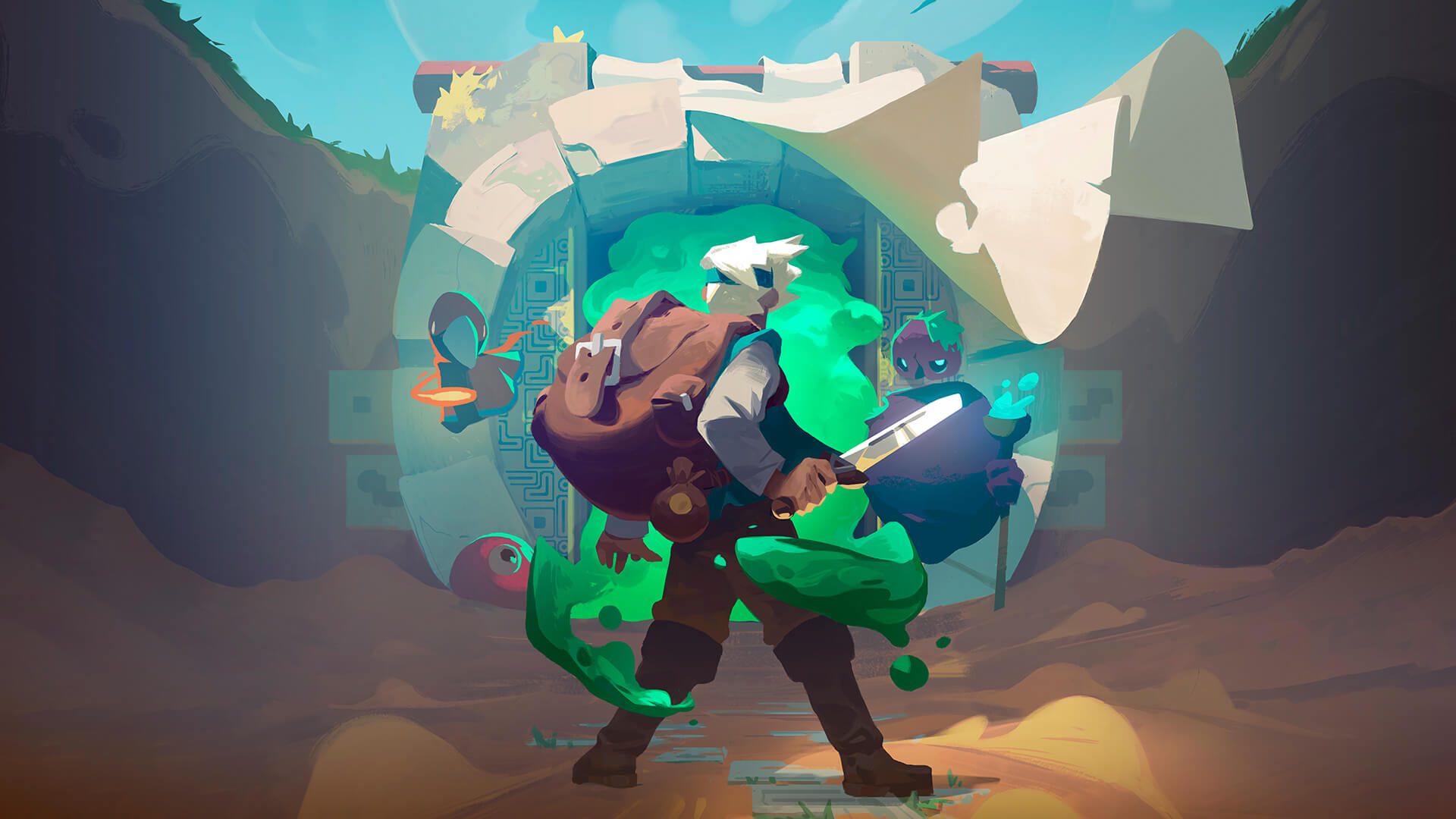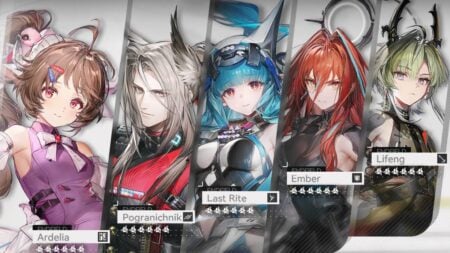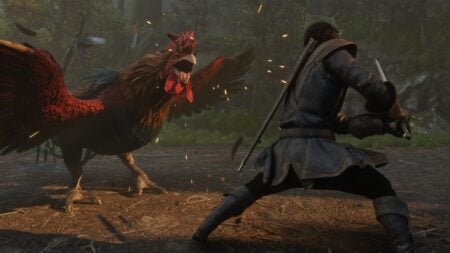Title: Moonlighter
Available On: PC (Reviewed), Mac, Linux, PlayStation 4,
Publisher: 11 Bit Studios
Developer: Digital Sun
Genre: Action, RPG, Roguelike, Shop Management
Official Site: https://moonlighterthegame.com/
Release Date: May 29, 2018
Where To Buy It: Microsoft Store, PlayStation Store, Steam, GOG, Humble
“I can probably make it one more room, then I’ll turn back,” is a mantra that I often found myself repeating as I played through Moonlighter. It got to the point where, if I caught myself saying it, that meant it was time to abandon my quest and head back to town. It’s a game of risk and reward, a game where you’ll find yourself thrilled with your victories and cursing yourself if you don’t quit while you’re ahead. It’s also a game with too little to do, unfortunately, but its charm and polish go a long way.
Moonlighter is two different games blended together. You take on the role of Will, the owner of the “Moonlighter” shop in the run-down town of Rynoka. During the day, you must run your shop: set out goods on the table, adjust prices, and react to customers with special requests. To obtain those goods, Will “moonlights” as an adventurer; after the shop closes, you must take him to the various (randomly-generated) dungeons outside of town to kill monsters and collect goods. There are five different dungeons, each with a boss, and each with different loot you can use to craft better gear or sell to earn money.
Both systems work pretty well, especially as you are starting the game out. The shopkeeping system is never terribly stressful, as it is pretty easy to start items with a high price and bring them down as you figure out what they are worth. Reading customers is pretty simple, and the game keeps track of what prices for an item are considered a steal, too expensive, or just right. Once you find a price that sells in that middle ground, there isn’t much incentive to mess with it. Therefore, the shopkeeping aspect is nice, but it seems a bit shallow for what it could be.
The only area that needs some consideration when you are selling your goods is in crafting gear. The progression system of the game is also simple, but there are a few different routes you can specialize in. Are you going to use a spear, a sword and shield combo, a bow and arrow? Will you buy armor that gives you less protection but enables you to move faster, or are you going to be a big, slow tank? You can wishlist things as well, which will mark every item you will need to build it with a star, meaning you won’t accidentally sell those special pieces of fabric that you need to build your new boots.
The dungeon-exploring aspect of Moonlighter is also done well, combining elements of old school Legend of Zelda games with the procedural generation of a roguelike. Each of the dungeons is themed (rock, jungle, fire, etc.), and each must be defeated before unlocking the next. The ultimate goal is to open the mythical fifth dungeon, although the story behind Moonlighter is relatively thin. The combat is fairly simple overhead action, and one thing that surprised me was how little of a penalty you suffer for failing a dungeon. Let’s talk about the ultimate goal of these areas for a moment.
When you enter a dungeon, your goal every time is to collect loot you can sell at your shop the next day. However, your inventory space is limited, and your character is fairly fragile as well. Items also sometimes carry curses. Some items can only go on the bottom row of your bag. Some items destroy adjacent items when they are placed. You have to be careful about what goes where, and be on the lookout for better loot and stronger enemies. Meanwhile, you also carry an item that teleports you back to town for a small amount of gold, or you can spend a bit more to make a portal that you can return through the next night. This is useful if you are trying to make a boss run to unlock the next dungeon. If you die in a dungeon, you are thrown out of the entrance with a small handful of the items you collected. You’ll have to try again the next day.
The good thing about Moonlighter is that, overall, there are a lot of systems interacting with one another. This means there is lots to figure out and lots to do. Getting better at every system simultaneously is essential for advancing in the game, and the fact that it is never too punishing makes it feel like you are never far from the next step up. The bad thing is, as you move through Moonlighter, you start to realize there isn’t all that much to it. The shop element is just trial and error, and you’re only ever one or two successful dungeon runs away from being inundated with money. Combat is also a bit too simple – more unpredictable enemies or a wider variety of equipment (Binding of Isaac‘s combat springs to mind) could make this game feel more like a game and less like… work.
There is still a good amount of fun to have with Moonlighter. The music and art style are both extremely charming, and the combination of genres feels like a natural marriage. It never quite gets past the “great idea” realm though, and winds up being a bit too simple and short to become the next great indie title.
Verdict: Moonlighter has a lot of good ideas and a lot of charm working for it. Bringing the town back to life, scouring randomly-generated dungeons for loot, and selling the extra supplies in your own shop all works well. However, it’s begging for more. More variety, more to do, more uncertainty, more wrenches in the shop system… You’ll get some fun out of it, but you’ll also be left wishing there was more to it.
[review]











